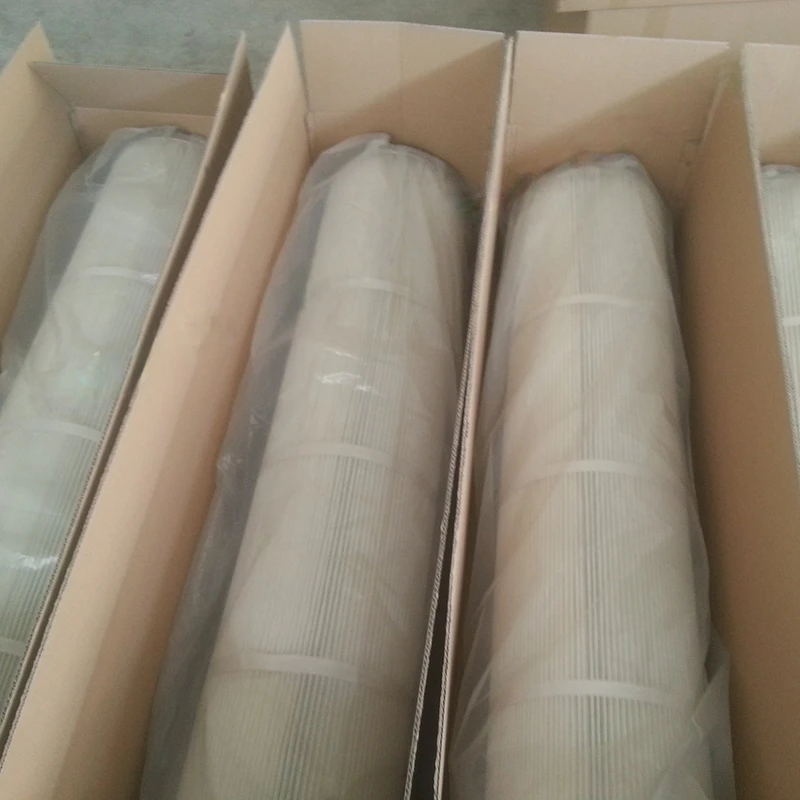 Tel:
+8618931101301
Tel:
+8618931101301
Déc . 03, 2024 12:21 Back to list
turbine air intake filters
The Importance of Turbine Air Intake Filters
In the world of industrial applications and power generation, gas turbines play a pivotal role in converting fuel into a reliable energy source. However, the efficiency and longevity of these turbines depend significantly on various factors, one of the most critical being the air intake filters. This article will explore the purpose, types, maintenance, and impact of turbine air intake filters on overall turbine performance and longevity.
Understanding Turbine Air Intake Filters
Air intake filters serve a vital function in gas turbines by ensuring that the air fed into the combustion chamber is clean and free of contaminants. The smooth operation of a gas turbine is heavily reliant on the quality of air it inhales. Particulate matter, dust, pollen, and other airborne pollutants can lead to various problems, such as reduced efficiency, increased fuel consumption, and even catastrophic failures.
The filters are designed to capture these airborne impurities before they enter the turbine, thus safeguarding the delicate components, such as blades and combustion chambers, from abrasion and fouling. This protection is crucial because any foreign particles that slip past the filters can cause erosion, leading to mechanical failure and increased maintenance costs.
Types of Turbine Air Intake Filters
There are several types of air intake filters used in gas turbines, each with unique characteristics and applications
. The most common types include1. Panel Filters These filters are flat and typically made of fibrous materials, offering a good balance between airflow and filtration efficiency. They are easy to install and replace but may require frequent changes in highly contaminated environments.
2. Bag Filters Bag filters are larger and can hold a more significant amount of particulate matter. They are designed for high-efficiency filtration and are particularly effective in environments with higher dust and particulate levels.
3. Cyclone Separators These are not traditional filters but rather devices that remove heavier particles from the air using centrifugal force. They are often used as pre-filters to extend the life of downstream filters.
turbine air intake filters

4. Electrostatic Filters Utilizing electrostatic attraction, these filters can capture smaller particles that traditional filters may miss. They are effective in environments where fine particulates are prevalent.
Each type of filter has its advantages and is selected based on the specific operating conditions of the turbine and the environment in which it operates.
Maintenance of Air Intake Filters
Regular maintenance of air intake filters is crucial for ensuring optimal turbine performance. Over time, filters can become clogged with particulates, leading to increased resistance to airflow. This restriction can reduce the amount of air entering the combustion chamber, ultimately affecting the turbine’s efficiency and power output.
Routine inspections should be conducted to assess the condition of the filters. Depending on the operating environment, filters may need cleaning or replacement every few weeks or months. In harsh environments, where dust and contaminants are abundant, more frequent maintenance is necessary.
Operators should also monitor pressure drops across the filters, which is a key indicator of filter performance. If the pressure drop exceeds a certain threshold, it indicates that the filter is becoming saturated and needs to be serviced.
The Impact of Air Intake Filters on Turbine Performance
The impact of well-maintained air intake filters on turbine performance cannot be overstated. High-efficient filters help maintain a consistent and clean airflow into the turbine, which contributes to optimal combustion, increasing efficiency and reducing harmful emissions. Moreover, protecting the turbine components from contaminant-related damage reduces downtime and maintenance costs.
In summary, turbine air intake filters are crucial to the performance, efficiency, and lifespan of gas turbines. Understanding the different types of filters, their maintenance needs, and their impact on overall turbine operation is essential for operators in the energy and industrial sectors. As industries continue to emphasize efficiency and sustainability, ensuring clean air intake through proper filtration will remain a priority in maintaining the effectiveness of gas turbines. Proper attention to air intake filters is not merely an operational detail; it is a key aspect of energy management in a technologically advanced world.
-
Working principle of high-efficiency dust filter elementNewsJun.26,2025
-
The truth about washable filters: Does repeated use really not affect efficiency?NewsJun.25,2025
-
Effect of humidity on the performance of activated carbon filter elementsNewsJun.24,2025
-
Material selection considerations for dust removal filter elements under high temperature conditionsNewsJun.23,2025
-
Cold knowledge of air filters: Why are some designed to be pleated?NewsJun.16,2025
-
Factory direct supply! High-precision air filter element wholesale and customizationNewsJun.12,2025

 Email:
Email:





